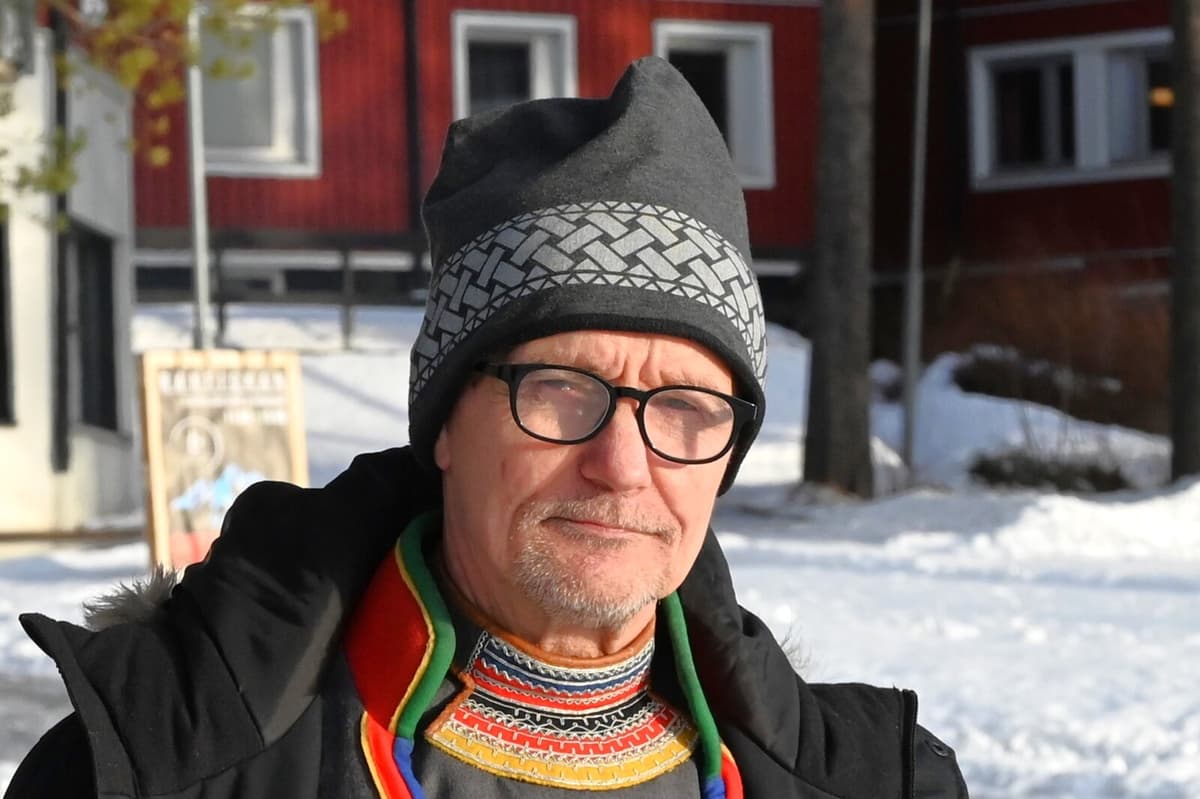According to a Novus survey from April, more than four out of ten would vote for the Swedish Sami Association, which is an increase compared to the previous election when the party received 37.6 percent of the votes.
If the party again succeeds in forming a majority, Håkan Jonsson, chairman of the party and current chairman of the Sami Parliament, has the ambition to persuade the Swedish government and parliament to drive through a law change regarding who has the right to belong to a Sami village.
As the largest party, we want to change the current legislation to a Sami law that applies to the entire Sami people. We believe that all Samis should have the right to become members of a Sami village and the rights that come with it. As it looks now, it is the Sami villages themselves that decide who gets to be a member, says Håkan Jonsson.
Limited resource
With the support of the Reindeer Husbandry Act, only those who are Sami and members of a Sami village may engage in reindeer husbandry and use land and water they do not own for the maintenance of themselves and their reindeer.
Håkan Jonsson himself describes the issue as "a knife that cuts straight through" the Sami Parliament and divides the eight parties into two camps.
Now we have a collaboration with the Forest Sami and have written a proposal together and submitted it to the government, and that is what the opposition wants to scrap.
Marianne Gråik, chairman of the Sameland Party, believes that it is not possible to force Sami villages to accept members and that the hunting itself is tied to a resource that is limited.
We must allow the Sami villages to decide for themselves. The right to reindeer husbandry is a property-like right, and you cannot force someone who owns a right to share it or give it up. It is not within the realm of politics.
Can gain majority in the long run
But according to Peter Sköld, researcher in Sami culture at Umeå University, it is not impossible with a law change. Since the first election in the Sami Parliament in 1993, voters have increasingly voted for parties that want to drive through a law change of the Reindeer Husbandry Act.
As more people register in the electoral rolls, an issue that the Swedish Sami Association is driving and is positively inclined towards, he believes that the party can gain a single majority in the long run.
But that does not mean they can change everything. The contradictory nature of the Sami Parliament is that it is a state authority that should follow the will of the Swedish government, while it is also an elected Sami organ that should do what the Sami people want. The two wills do not always go hand in hand.
The Sami Parliament is both a state authority with administrative tasks and an elected organ with a mandate to work on issues related to Sami culture.
The authority also works with issues related to Sami land use, urban planning, reindeer husbandry, wildlife management, environment, climate, and biological diversity.
The Sami Parliament's elected assembly, called the plenum, consists of 31 elected members.
Elections to the Sami Parliament have been held every four years since 1993. In 2021, 5,977 people out of a total of 9,226 eligible voters voted, which corresponds to 64.8 percent.
The Swedish Sami Association became the largest party with 37.6 percent of the votes and formed a coalition with the parties Vuovdega and Landspartiet svenska samer.
Håkan Jonsson from the Swedish Sami Association was appointed chairman of the board.
The opposition consists of the parties Sameland Party, Guovssonásti, Min Geaidnu and the Sami Party.
The election in 2025 will take place on Sunday, May 18, where all seven parties will participate. The County Administrative Board of Norrbotten will begin counting the votes after the election day and the result is expected to be clear no later than May 28.
Sources: Election Authority, Sami Parliament






